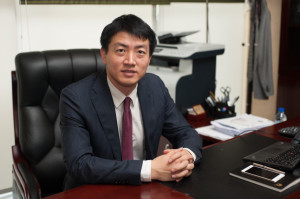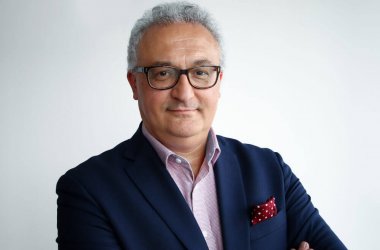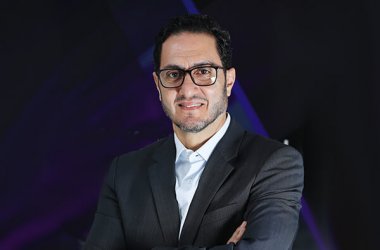
Huawei has fast become one of the most important players in the IT industry in the Middle East. From hospitality to education, the company has projects in a variety of industries across the region. CNME’s Deputy Editor, Annie Bricker, sat down with the President of Huawei’s Middle East Enterprise Bussiness Unit, Dong Wu, at GITEX Technology Week to discuss the company’s role in changing the lives of customers in the Middle East.
Huawei’s presence at GITEX was huge – why does the company find this show so important?
As you know, in the global IT industry there are a few exhibitions we cannot miss. As a global IT vendor, GITEX is one of these. It a very good platform to demonstrate our latest technologies and solutions. In the past few years, we have demonstrated a lot of important technologies at GITEX which gained a lot of interest from the markets. It gives us a chance for our customers and our partners to understand Huawei more completely and to consider our very long and productive portfolios. In short, the GITEX exhibition gives us a very good chance to show our abilities.
Do you plan on expanding your presence next year?
Yes, if you look at our business in the past few years and the enterprise markets in the region, they have increased at a very fast speed. Our business will continue expanding here, as will our booth at GITEX.
Huawei has a number of projects happening in the region – why is this region so important to the company?
Our history in the region begins around the year 2000. Today, we have become one of the biggest leaders in the Middle East telecom and IT industries. We always regard the Middle East as one of our strategic regions, and we have from day one. We always try to bring the latest technology solutions to the Middle East, so that customers here have the chance to enjoy the latest technologies. This is one of the key success factors here. For example, in 2003, we were one of the first vendors to bring 3D technologies to the region.
Do you think the ME is a unique region for Huawei?
The unique thing here is that the customer always wants the best and latest technologies. Consumers want to enjoy the newest technologies available. Also the customer demands a higher level of service and support. People expect, and we can deliver, long term support and faster response times.
Huawei has a number of projects in the region right now. Can you speak on Huawei’s style of partnership in regard to these projects?
A good example is our partnership with Saudi Aramco. They are one of the biggest oil companies, and we have helped them to build a nationwide, unified communication system. That is only one of our success stories. Others include TVTC – this is one of the biggest cloud-based solutions in the region. Another customer we are working with is the Jannah Hotel and Resorts. With them, we provide the fastest Internet connection at any hotel in the UAE. The CEO of the Jannah Hotel says that the reason they came to Huawei for a solution is because rather than the traditional style of the vendor coming to them and saying, “This is what we have,” we actually came to them and asked, “What do you need?” From that moment they realised that Huawei wants to understand what they need in regard to products and solutions.
Does Huawei provide continued support once a project’s implementation has been completed?
Yes. Not only continued support, but we provide managed services as well. We help them to maintain and operate their own network. We like to work together with our partners in training and knowledge transfer.
Do you think that your growth in the Middle East is a health indicator of the IT industry in the region?
Yes. From our company perspective, we have seen huge potential in this region in comparison to other regions. We have very positive forecasts here. Also, many of the IT players are gaining a lot of attention in the Middle East as well. This is especially true because there are more and more government agencies in this region that want to get involved with the latest technology and improve their telecom and IT infrastructures. This will generate a lot of IT related opportunities.
What trends are Huawei paying attention to for the next six months to a year?
The first trend in this region is Smart Cities and mobile government or e-government. To make this vision happen, telecom and IT vendors will have to be involved. If the cities want a broadband network on every corner, Huawei can and is doing a lot of things to make this happen. We can give the customer a complete picture of ICT in the cities. This means that people can enjoy IT everywhere – schools, banks, restaurants – customers can enjoy different kinds of broadband technologies. Based on that we have vertical solutions for different industries. Our solutions can be one-stop solutions. We have e-classroom solutions for education, and telecommunication services for finance, for example.
In regard to your partnerships with local government, how is Huawei changing how citizens interact with their government agencies?
Huawei is looking to create a better connected world. So our technology has improved the lives of citizens a great deal already. It can increase the level of transparency between citizens and what the government is doing and bring them one step closer to the government. For example, with what we are doing with the Abu Dhabi Ministry of Islamic Affairs, we have upgraded an infrastructure that streamlines the process for citizens wanting to utilise their services.





